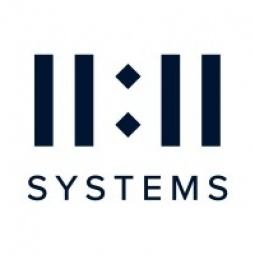下载PDF
Jonas Fitness capitalizes on managed IT to support extensive growth and ongoing innovation
技术
- 平台即服务 (PaaS) - 应用开发平台
适用行业
- 医疗保健和医院
适用功能
- 离散制造
用例
- 车队管理
- 预测性维护
服务
- 云规划/设计/实施服务
- 系统集成
挑战
Jonas Fitness, a division of Jonas Software, faced a one-year deadline to migrate its club management applications from legacy platforms to a robust, scalable, and secure alternative. The applications – a legacy system known as i4™, and a next-generation SaaS platform known as Compete®– would require not only highly available production hosting services, but disaster recovery and PCI (Payment Card Industry) compliance support as well. Historically, the organization had struggled to manage and enhance its systems in an agile fashion. Rigid and slowmoving change controls hampered the success of its Compete application. As a software company in a fast-paced industry, Jonas Fitness was eager to obtain superior IT management. Given the tight timetable for migration, the complexity of the endeavor, and the array of skills necessary to manage its platforms, the firm quickly decided it would need to engage a managed services partner.
关于客户
Jonas Fitness is a division of Jonas Software, a leading provider of enterprise management software solutions to a number of vertical markets, including a leadership position in the global fitness, sports, and leisure vertical. Jonas has over 25,000 customers in more than 15 countries worldwide. Jonas’ vision is to be the branded global leader across its ten vertical markets and to be recognized by customers and respective industry stakeholders as the trusted provider of “Software For Life”. Jonas Fitness is a global leader in health club software and billing services providing best-in-class management systems to health clubs around the world. The solution enables the firm to efficiently manage everything from member check-in to the scheduling of personal training classes, and bill payment to mobile self-service. Enabling its clients to automate and delegate demanding operational challenges frees them to focus on producing a powerful customer experience. Recognizing the value of this approach, more than 6,000 health clubs now rely on its solutions.
解决方案
Jonas Fitness engaged 11:11 Systems (formerly Sungard AS) for the complex migration and managed services initiative. The project involved the carefully planned movement of databases and applications to several supporting data centers. 11:11 Systems provided an array of managed hosting services. It was able to provide shared space on an IBM mainframe, sparing Jonas Fitness from investing in an extremely expensive system it could not fully utilize. It provided managed mainframe and x86 infrastructure support for Compete, the company’s SaaS-delivered suite of applications. This gives Jonas Fitness a solid foundation to scale up as necessary, meeting the growth demands of the business in an agile and flexible fashion. Additionally, 11:11 has guided and supported Jonas Fitness through the demanding process of meeting PCI compliance standards. The rigors of this process can be particularly challenging in a new IT environment. Technical support and continuous reporting have been a critical factor in meeting and maintaining the exacting requirements of compliance auditors. And, to ensure the availability and protection of the applications and infrastructure, the 11:11 Managed Recovery team provided replication to a disaster recovery environment.
运营影响
数量效益
相关案例.

Case Study
Hospital Inventory Management
The hospital supply chain team is responsible for ensuring that the right medical supplies are readily available to clinicians when and where needed, and to do so in the most efficient manner possible. However, many of the systems and processes in use at the cancer center for supply chain management were not best suited to support these goals. Barcoding technology, a commonly used method for inventory management of medical supplies, is labor intensive, time consuming, does not provide real-time visibility into inventory levels and can be prone to error. Consequently, the lack of accurate and real-time visibility into inventory levels across multiple supply rooms in multiple hospital facilities creates additional inefficiency in the system causing over-ordering, hoarding, and wasted supplies. Other sources of waste and cost were also identified as candidates for improvement. Existing systems and processes did not provide adequate security for high-cost inventory within the hospital, which was another driver of cost. A lack of visibility into expiration dates for supplies resulted in supplies being wasted due to past expiry dates. Storage of supplies was also a key consideration given the location of the cancer center’s facilities in a dense urban setting, where space is always at a premium. In order to address the challenges outlined above, the hospital sought a solution that would provide real-time inventory information with high levels of accuracy, reduce the level of manual effort required and enable data driven decision making to ensure that the right supplies were readily available to clinicians in the right location at the right time.

Case Study
Gas Pipeline Monitoring System for Hospitals
This system integrator focuses on providing centralized gas pipeline monitoring systems for hospitals. The service they provide makes it possible for hospitals to reduce both maintenance and labor costs. Since hospitals may not have an existing network suitable for this type of system, GPRS communication provides an easy and ready-to-use solution for remote, distributed monitoring systems System Requirements - GPRS communication - Seamless connection with SCADA software - Simple, front-end control capability - Expandable I/O channels - Combine AI, DI, and DO channels

Case Study
Driving Digital Transformations for Vitro Diagnostic Medical Devices
Diagnostic devices play a vital role in helping to improve healthcare delivery. In fact, an estimated 60 percent of the world’s medical decisions are made with support from in vitrodiagnostics (IVD) solutions, such as those provided by Roche Diagnostics, an industry leader. As the demand for medical diagnostic services grows rapidly in hospitals and clinics across China, so does the market for IVD solutions. In addition, the typically high cost of these diagnostic devices means that comprehensive post-sales services are needed. Wanteed to improve three portions of thr IVD:1. Remotely monitor and manage IVD devices as fixed assets.2. Optimizing device availability with predictive maintenance.3. Recommending the best IVD solution for a customer’s needs.

Case Study
HaemoCloud Global Blood Management System
1) Deliver a connected digital product system to protect and increase the differentiated value of Haemonetics blood and plasma solutions. 2) Improve patient outcomes by increasing the efficiency of blood supply flows. 3) Navigate and satisfy a complex web of global regulatory compliance requirements. 4) Reduce costly and labor-intensive maintenance procedures.

Case Study
Harnessing real-time data to give a holistic picture of patient health
Every day, vast quantities of data are collected about patients as they pass through health service organizations—from operational data such as treatment history and medications to physiological data captured by medical devices. The insights hidden within this treasure trove of data can be used to support more personalized treatments, more accurate diagnosis and more advanced preparative care. But since the information is generated faster than most organizations can consume it, unlocking the power of this big data can be a struggle. This type of predictive approach not only improves patient care—it also helps to reduce costs, because in the healthcare industry, prevention is almost always more cost-effective than treatment. However, collecting, analyzing and presenting these data-streams in a way that clinicians can easily understand can pose a significant technical challenge.






